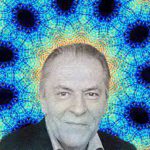In response to some of your requests, this guest-post portrays the context, experience, and potential value of psychedelic therapy for those struggling with addiction (and other stuff). By someone who’s been there and can talk about it with precision and depth.
…By Eric Nada…
 I was very nervous the first time I drank ayahuasca. I had been traditionally abstinent for 20 years. Though I suspected that I would stick with my recovery afterward, 12-step philosophy insisted that all mind-altering substances would lead me to the same desperate and re-addicted end. I had recently ended my involvement with that fellowship, trading its emphasis on disease/abstinence for a more intuitive
I was very nervous the first time I drank ayahuasca. I had been traditionally abstinent for 20 years. Though I suspected that I would stick with my recovery afterward, 12-step philosophy insisted that all mind-altering substances would lead me to the same desperate and re-addicted end. I had recently ended my involvement with that fellowship, trading its emphasis on disease/abstinence for a more intuitive  explanation of addiction as a reaction to personal trauma. I had been working on emotional healing from this perspective for a few years and found myself drawn to the stories of others who had used psychedelic medicines for healing and exploration. Still, this path rasied long-held concerns about the pitfalls of drug use.
explanation of addiction as a reaction to personal trauma. I had been working on emotional healing from this perspective for a few years and found myself drawn to the stories of others who had used psychedelic medicines for healing and exploration. Still, this path rasied long-held concerns about the pitfalls of drug use.
 Far from triggering addictive patterns, my ayahuasca experience was profound, life-altering, and rich in insight. During that first journey, for instance, I saw very clearly how abstinence had “cleared the space” for healing the patterns underlying my addictive drives, but did not provide the healing itself. I also began to see a lifelong pattern of fear that had developed alongside burgeoning feelings of love for significant others in my life. In sharp contrast to “relapse,” it provided a homecoming to my long-standing beliefs about the potential benefits of psychedelics. I have subsequently committed myself to regular work with psychedelics, ever deepening the understanding of my addictive patterns.
Far from triggering addictive patterns, my ayahuasca experience was profound, life-altering, and rich in insight. During that first journey, for instance, I saw very clearly how abstinence had “cleared the space” for healing the patterns underlying my addictive drives, but did not provide the healing itself. I also began to see a lifelong pattern of fear that had developed alongside burgeoning feelings of love for significant others in my life. In sharp contrast to “relapse,” it provided a homecoming to my long-standing beliefs about the potential benefits of psychedelics. I have subsequently committed myself to regular work with psychedelics, ever deepening the understanding of my addictive patterns.
Healing addiction through a mind-altering process may sound counterintuitive, since we have come to emphasize abstinence as evidence of recovery. However, psychedelics, especially when taken for therapeutic purposes, don’t seem to be habit forming. The psychedelic experience is arguably, in fact, the opposite of  addiction. Substances or behaviors that are traditionally habit-forming seem to please or anesthetize the very parts of the psyche that psychedelics directly challenge. Ingesting a psychedelic remains a discipline for me rather than an indulgence. Psychedelics produce not a high but an experience—a journey through consciousness.
addiction. Substances or behaviors that are traditionally habit-forming seem to please or anesthetize the very parts of the psyche that psychedelics directly challenge. Ingesting a psychedelic remains a discipline for me rather than an indulgence. Psychedelics produce not a high but an experience—a journey through consciousness.
But how can psychedelics help someone with an active addiction? How can these wild rides into consciousness be directed to challenge the rigid bonds that our addictions represent? There is more than one way to approach psychedelic-assisted addiction therapy, and recreational psychedelic use can also be “therapeutic.” But there is a general format that seems best suited to optimize the therapeutic experience.
The process can be discussed as falling into three stages—preparation, journey, and integration. During the preparation stage, the participant addresses their mind-set. Obviously no one knows exactly how a journey’s content will be experienced, but a participant should be familiar with the process in general, and the nature of the compound they will ingest in particular. The second  important aspect of the preparation stage is to establish intention. This is where the participant might formulate specific questions about their addiction. “Why did I develop this pattern? Why am I having trouble changing it? How might I need to change to become a person who doesn’t rely on the mechanics of addiction to function?” This is also the time to highlight any significant history of abuse or trauma that may also be explored during the journey. The idea is that the participant has some understanding of what to expect and what to explore.
important aspect of the preparation stage is to establish intention. This is where the participant might formulate specific questions about their addiction. “Why did I develop this pattern? Why am I having trouble changing it? How might I need to change to become a person who doesn’t rely on the mechanics of addiction to function?” This is also the time to highlight any significant history of abuse or trauma that may also be explored during the journey. The idea is that the participant has some understanding of what to expect and what to explore.
 Next comes the journey itself. Whoever guides the psychedelic journey should be experienced. They should have extensive knowledge about the compound they administer. They should be able to vet the participant to make sure that they don’t have any psychological or medical issues likely to cause real trouble. And they should be experienced with containing the setting of the experience, able to help the participant navigate any difficult emotional or physiological states encountered
Next comes the journey itself. Whoever guides the psychedelic journey should be experienced. They should have extensive knowledge about the compound they administer. They should be able to vet the participant to make sure that they don’t have any psychological or medical issues likely to cause real trouble. And they should be experienced with containing the setting of the experience, able to help the participant navigate any difficult emotional or physiological states encountered  along the way. The psychedelic journey, itself, produces a radical shift in consciousness. Initial distortions in the visual field soon transform into vast cognitive and emotional reorientation. These shifts drastically alter the way we process our “self”—as if the egoic layers that create the story of who we are become loosened. And as they loosen, we see through them more easily, and rigid patterns that may have escaped conscious detection can become clear. As the journey deepens, the experience often transforms into a dreamlike flow of images, emotions, and physical sensations. During this stage, as the
along the way. The psychedelic journey, itself, produces a radical shift in consciousness. Initial distortions in the visual field soon transform into vast cognitive and emotional reorientation. These shifts drastically alter the way we process our “self”—as if the egoic layers that create the story of who we are become loosened. And as they loosen, we see through them more easily, and rigid patterns that may have escaped conscious detection can become clear. As the journey deepens, the experience often transforms into a dreamlike flow of images, emotions, and physical sensations. During this stage, as the  intensity peaks, insights can seem more intuitive than explicit. Eventually the journey concludes, usually bringing the participant gently back down to the familiar. By the journey’s end, even if parts of it were difficult, the participant is usually left feeling open, unguarded, vulnerable, sated, and shrouded in a feeling of deep resolution.
intensity peaks, insights can seem more intuitive than explicit. Eventually the journey concludes, usually bringing the participant gently back down to the familiar. By the journey’s end, even if parts of it were difficult, the participant is usually left feeling open, unguarded, vulnerable, sated, and shrouded in a feeling of deep resolution.
Finally, there is integration. Invariably, there will be a lot of information to unpack after the journey itself, and it is important to make sense of what has been learned. The impact of the psychedelic journey often leaves the participant with the feeling that they are irrevocably changed, that parts of them have been rearranged permanently. And while certain lessons may indeed remain intact, the conditioned layers that may have seemed so translucent during the psychedelic journey will inevitably reform over the days or weeks following. Automatic thought patterns that had been largely unconscious until they were illuminated by the psychedelic beam may regain their automaticity once more. And so it is through integration that we make sense of our experience, that we take the images, impressions, and insights and create a narrative. This narrative can be woven into a treatment plan in an effort to ensure  that the process leads to lasting changes after the afterglow has faded. Through integration, epiphany is transformed into practical therapeutic direction aimed at sustained change.
that the process leads to lasting changes after the afterglow has faded. Through integration, epiphany is transformed into practical therapeutic direction aimed at sustained change.
Psychedelic therapy is deep and profound. It can be discussed as a mind-body technique, along with other modalities that have the capacity to bypass the more conscious layers of the mind—think EFT, EMDR, Somatic Experiencing, and therapeutic hypnosis. It dovetails easily with depth psychology and Jungian archetype work. It also aligns with parts work such as IFS and Inner Child Work. Therapists will frame integration according to their training. This is why, when doing this work to heal addictive patterns, it is important to structure the experience according to a therapeutic framework relevant to addiction. Again, the healing benefits of psychedelics are not just produced by the compound itself but through the whole of the experience they inspire.
It has often been said that a psychedelic journey is akin to ten years of therapy in a single evening. I find this to be an imperfect comparison, but I get the sentiment. It does seem to deepen and accelerate the therapeutic process. Sometimes, if I journey deeply enough, I break through the egoic layers altogether and experience the transpersonal—and it’s divine. Oneness. No separation. And while I am always relieved to be reunited with myself as the precious layers that make up “Eric” reform themselves, they seem to reform less rigidly, thus I come back less attached to them and closer to the purity that lies beneath. Of course we need some of these layers so that we can navigate the world. But if we can use the psychedelic journey to help illuminate the parts of ourselves that invoke addictive patterns, if we can listen to these parts and soothe them, then we can more easily heal. Approached from this perspective, therapeutic work using psychedelics can be very, very effective.

Leave a Reply